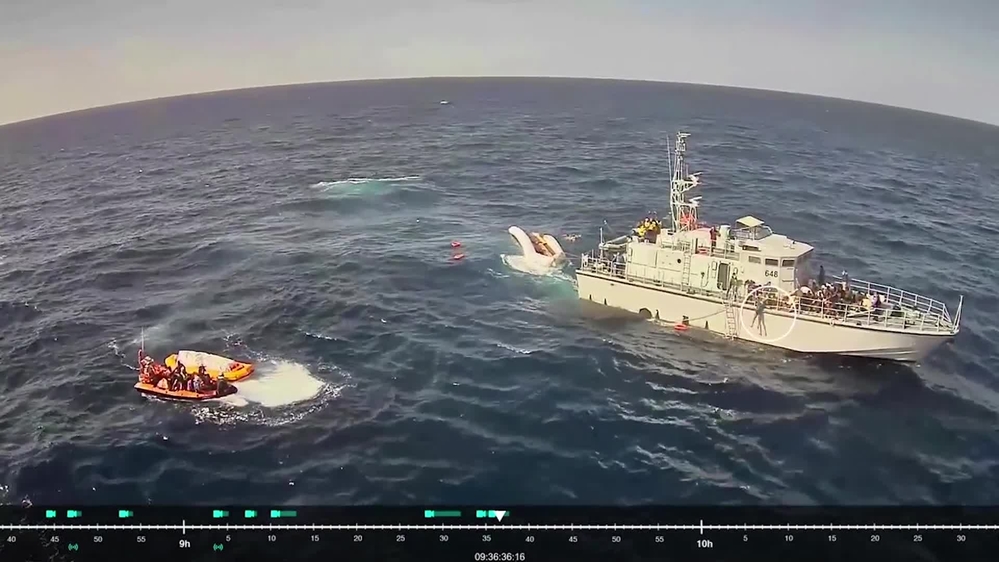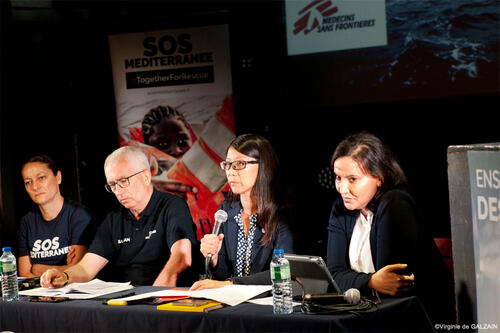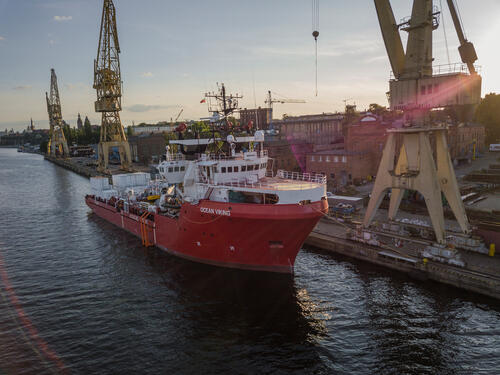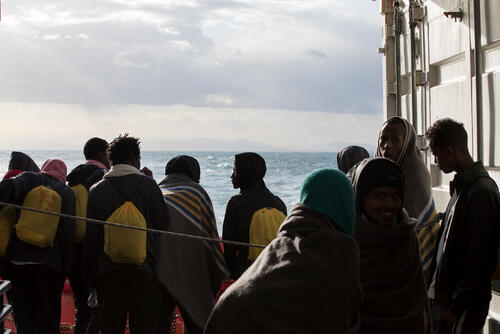The following speech was delivered by MSF International President Dr Joanne Liu in Paris on the announcement of MSF's decision to return to sea for search and rescue operations.
More than 8,000 people have attempted to cross the Mediterranean Sea since the start of the year. And during this time there have been virtually no humanitarian vessels in the area. Four hundred and twenty-six people have already died.
We are returning to sea because people are drowning.
We are returning to sea as a humanitarian act aimed at saving lives.
We are returning to sea as conflict rages in Tripoli and ever more migrants and refugees are losing their lives in Libya.

Interview with Joanne Liu on relaunch of SAR activities
For many… the deadly Mediterranean Sea crossing is the only hope of escaping the nightmare… that they are subject to in Libya.Dr Joanne Liu, President MSF International
The situation is getting worse and worse, and European governments are sinking ever deeper into a deadly logic based on two main premises: that the problem they recognise is getting rid of search and rescue operations, and that the solutions are letting migrants and refugees drown or forcing them back to Libya.
With very few NGO vessels left in the central Mediterranean, the European Union has killed off the last vestiges of search and rescue operations.
Meanwhile, commercial ships find themselves in an untenable position, stuck between the duty to rescue and the risk to be stranded at sea for weeks, due to the closure of Italian ports and the inability of EU States to agree on a disembarkation mechanism.
In 2019, one person dies for every 10 who arrive in Europe by sea.Dr Joanne Liu, President MSF International
The net result: in 2019, one person dies for every 10 who arrive in Europe by sea.
As if it were not enough to dismantle search and rescue operations, European governments are using public funds to equip and support the Libyan coastguard to intercept migrants and refugees at sea and return them to Libya.
France has committed to provide ships to the Libyan coastguard, despite damming reports against the latter and knowing full well that it is supporting the forced return to Libyan detention centres of those seeking to escape Libya and the abuses they are exposed to there.
We are returning to sea because people are drowning.Dr Joanne Liu, President MSF International
For many – men, women and children – the deadly Mediterranean Sea crossing is the only hope of escaping the nightmare of rape, torture and forced labour that they are subject to in Libya.
Our teams work in Libya – in Tripoli, Zintan, Misrata, Khoms, Zliten and Bani Walid. They constantly sound the alarm about what awaits migrants and refugees intercepted at sea and returned to Libya, but European governments continue to ignore them.
What’s more, fighting has been raging around Libya’s capital, Tripoli, since April. Refugees and migrants in detention centres are trapped, unable to escape the shooting and bombardments.
Almost 60 migrants and refugees were killed and another 70 injured in the airstrike on the Tajoura detention centre on 2 July – a tragedy that could have easily been avoided. Our teams were working in Tajoura and were there just a few hours before. They returned to help the wounded and bore witness to the carnage.
With very few NGO vessels left in the central Mediterranean, the European Union has killed off the last vestiges of search and rescue operations.Dr Joanne Liu, President MSF International
Survivors of that airstrike were offered next to nothing, except to be released a week later in Tripoli, a city at war. Despite the indignation this massacre generated at all levels – Libyan, European and international – people continue to be forcibly returned and detained in this very detention centre, exposed to the same risks: today there are around 200, the majority of them intercepted at sea.
Humanitarian evacuations out of Libya remain a drop in the ocean: almost 1,300 people have been evacuated in 2019, while almost three times that number – 3,686 – have been intercepted at sea and returned to Libya. That means, for each person who is evacuated, at least two others are returned.
Fighting has been raging around Libya’s capital, Tripoli, since April. Refugees and migrants in detention centres are trapped, unable to escape.Dr Joanne Liu, President MSF International
Let’s be clear about this: all of these people should be evacuated from Libya.
We are facing a war of attrition aimed at making the public believe that the death and horrors experienced by thousands of people in Libya is an acceptable price to pay – the human price to pay – for managing European borders and migration flows. This is human suffering on an industrial scale.
Let’s be clear about this: all of these people should be evacuated from Libya.Dr Joanne Liu, President MSF International
We have made our choice. We are determined to continue to provide humanitarian assistance with Ocean Viking and our partner, SOS MEDITERRANNEE.
We will also continue to denounce and speak out about what is happening out of the public eye, and the consequences of the choices made by European governments in the name of managing migration. And we are not alone: civil society around Europe is mobilising, in France and Germany, as in Italy.
Thank you.






